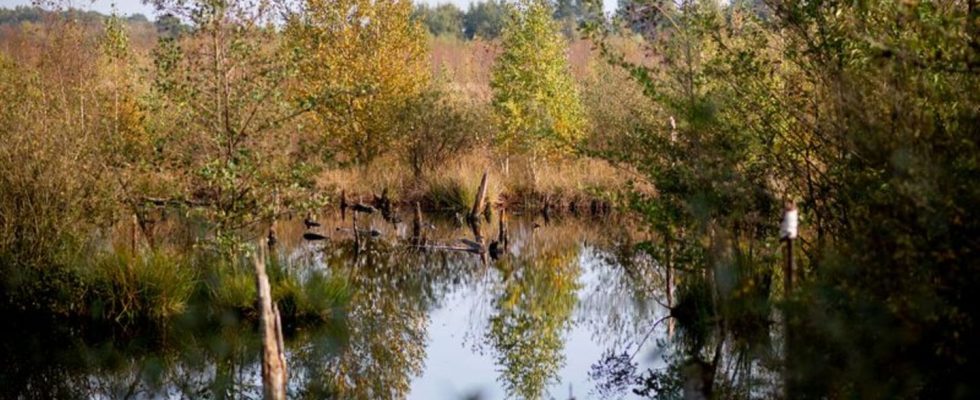Environmental policy
More Moore: Agreement on EU law to save nature
Moors are important for nature – like the Diepholz moorland here near the town of Heimstatt in the Diepholz district in Lower Saxony. photo
© Hauke-Christian Dittrich/dpa
A long struggle has come to an end for now. There is a provisional agreement on an EU nature conservation law, over which a heated dispute had previously broken out.
The background to the law is that, according to EU information, around 80 percent of the habitats in the European Union are in poor condition. In addition, 10 percent of bee and butterfly species are threatened with extinction and 70 percent of the soil is in an unhealthy condition.
The number of wild insect pollinators has fallen
The EU states said that the number of wild insect pollinators in Europe has declined dramatically in recent decades. To counteract this, the regulation stipulates that member states must take measures to reverse the decline by 2030 at the latest.
The law was preceded by a heated dispute, among other things because strict requirements for farmers were feared. The Christian Democrats in particular were against the project and tried to put it on hold completely. However, a motion to reject the law did not receive a majority in parliament in the summer.
With the compromise now negotiated, farmers will not be obliged to make a certain percentage of their land available for environmentally friendly measures, which farmers had feared. The compromise reached still has to be formally approved by the EU states and the European Parliament. Normally this is a formality. In this case, however, it is not entirely certain that enough Christian Democrats from the EPP will agree to the compromise to get a sufficient majority in Parliament.
“The EPP group will seriously examine and carefully weigh up today’s results before the upcoming decisions in the Environment Committee and in the plenary session,” said CDU negotiator Christine Schneider. Nature conservation and climate goals went hand in hand with agriculture and forestry. EU agricultural policy funds should not be used for measures under the law. She is pleased that the other factions have moved in the direction of the Christian Democrats on many key issues.
Greens: Painful compromises
Green MP Jutta Paulus, who was involved in the negotiations, spoke of some painful compromises. What is important, however, is the signal that the EU takes international obligations seriously. The Christian Democrats pushed through significant easing in the negotiations.
The EU Commission welcomed the outcome of the negotiations. By 2030, the EU states should carry out measures on at least 20 percent of land and sea areas to restore a good condition. The environmental organization WWF spoke of loopholes in the law in a statement. Many exceptions and flexibility in the obligations of the EU states are disappointing.

